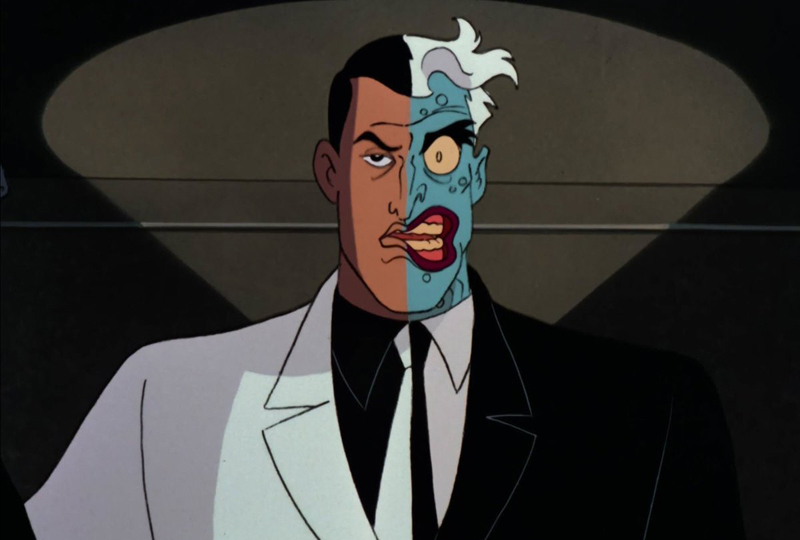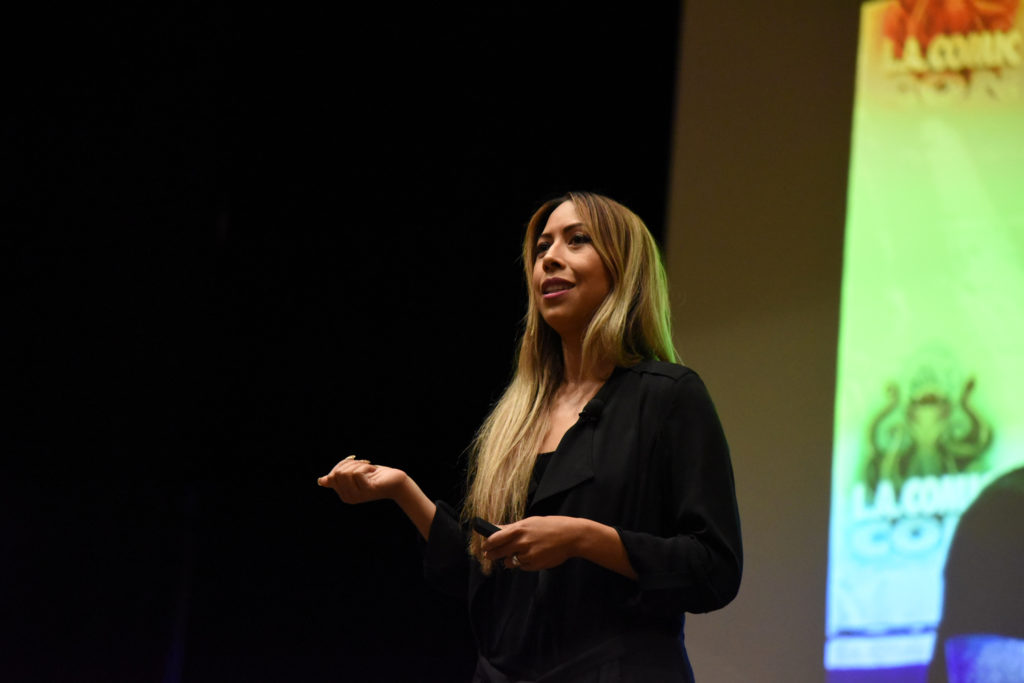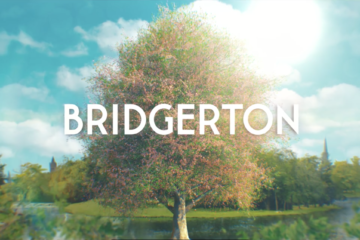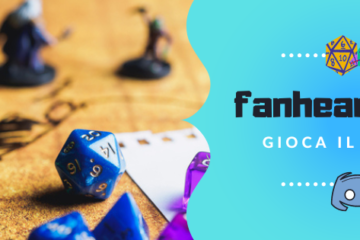In the weekly podcast The Arkham Sessions and in her articles Andrea Letamendi offers psychological analyses of some interesting fictional characters. Find out more about this incredible woman in fanheart3’s latest interview.
 Leggi questo articolo in Italiano
Leggi questo articolo in Italiano
Personal story ahead: the day after watching The Usual Suspects for the first time, I went to school knowing exactly what I wanted to do in my life: I wanted to become a criminal psychologist. The character of Keyser Söze had been for me, on that day, a psychological revelation which I kept thinking about for months to come.
I did not become a criminal psychologist (eventually, social psychology won my heart), but I’ve been interested in fictional criminals/villains since that first day. So, later on, when I bumped into Andrea Letamendi’s work, it was inevitable for me to fall in love with it at first sight.
Andrea Letamendi is a clinical psychologist specialized in trauma, a consultant for fiction writers and a writer herself, who owns the incredible website Under The Mask, where she analyzes fiction heroes and villains, their stories and their psychologies. But she also writes for other important website, like Fandom. Go take a look, if Kylo Ren is your favourite thing since lasagne were invented (here‘s Andrea’s insight on him) or if you agree that Marvel’s movies are as significant sometimes in unexpected ways, as we wrote in one of our 2019 articles (ITA part 1 | part 2 – ENG part 1 only).

Special guest, during the years, at important comic-cons (like the land of dreams of all us fans, the San Diego Comic-Con), Andrea is bringing on a message with her work that is not only scientifically and culturally poignant, but is meaningful for its impact on fan communities.
We interviewed her after a recent panel she joined at the New York Comic Con and here’s what she told us about her work, her passions and the role fictional characters can have in our lives.
Andrea Letamendi: the interview
The first time I bumped into your project, the podcast The Arkham Sessions (a/n episodes available here and on itunes) I was mesmerized by what you were doing. Your work on fan culture and on bringing attention to the psychological value of media production is incredible. Not only because it gives depth to media themselves, but also because it can bring a better awareness on mental health. What inspired you to start all this and what steps did you take to give “concreteness” to this idea?
I was working on a project with Warner Brothers called Necessary Evil: Super-Villains of DC Comics. I provided some interviews for them to use in their documentary, and I realized that many of my responses and explanations had a lot to do with Batman and psychology. My partner Brian Ward suggested we start a podcast to highlight the ideas and connections I was making between mental health and Batman, and then the Arkham Sessions podcast was created!
At first it started out as a lot of fun but when I heard from listeners who shared that they appreciated our approach to psychology and mental health, and even some who shared that they wanted to enter the field of psychology and human behavior, I realized how impactful our show is. Now, over 100 episodes later, we’re thrilled to have covered multiple topics ranging from mental disorders to dreams to resilience factors! It’s been an amazing journey.

Is there a specific episode of your podcast that is particularly significant to you or that you would recommend for some reason?
I recommend that listeners check out Heart of Ice and Two-Face Part I and II, as those episodes contain more complex ideas about villains and heroes. Namely, we explore concepts of grayness between good and evil, and the theories that help us understand redemption and recovery. We also begin to explore mental health disorders and relate those experiences to real-life presentations of struggles that many people have.
I don’t even see characters as “negative” or “positive” in this respect because I think all types of characters can help shape our psychology and assist us in examining ourselves further.
You’ve recently been at New York Comic Con with an amazing panel about the relationship we have with fictional characters. Could you tell us more about the concept of “parasocial relationship”?
Parasocial relationships are the meaningful and “non-delusional” connections we have with fictional characters. In other words, it’s the awareness that the people we’re fascinated with are not real people, but the realization that the relationship we have with them are deeply felt experiences. I recommend checking out this L.A. Times article in which I explore that a bit more in relation to how the Marvel films have impacted us.

Talking about parasocial relationships: are there different dynamics (or consequences) involved when you are a fan of positive characters (i.e. Steve Rogers, Tony Stark) and when you are a fan of negative ones (Hannibal Lecter, Joker)?
I tend to believe that any kind of parasocial relationship can be both meaningful and transformative in our lives. That is, if the character is prosocial and altruistic, they might inspire us to be better. If the character is problematic, anti-social, or destructive, i think there is still value in connecting with them. After all, humans aren’t all good or all evil.
Understanding the motivations and causes of harmful behavior helps us connect to some of our own negative or destructive tendencies. I don’t even see characters as “negative” or “positive” in this respect because I think all types of characters can help shape our psychology and assist us in examining ourselves further.
Having said that, aligning closely to a villain in a way that someone idolizes or glamorizes them may be troubling for some. An article I wrote about the Joker might further elucidate how a very “bad” character can help us grow personally and psychologically.
Future projects in relation to fan culture?
Please check out Looking for Leia, which recently debuted on Syfy last month! I was really excited to be a part of this female directed docu-series. Looking for Leia is a documentary about women & non-binary fans of Star Wars who found identity, connection, and purpose in their love of the galaxy far, far away. I was thrilled to share my story as well as help audiences connect positive mental health with their fandom.
You can watch Looking for Leia episodes at Syfy official website (episodes available in English).
It’s always immensily satisfying for us to meet the amazing people who, with their work and passion, shed some lights on the dynamics which our fan culture revolves around. We offer our thanks, some flowers, Joker’s action figures and tons of candies to Andrea Letamendi for this beautiful chance to discuss what’s behind a well-written character and the depth of fictional worlds that are so relevant to fans.
Find out more about Andrea Letamendi on her website or follow her Instagram account.



2 commenti
I commenti sono chiusi.